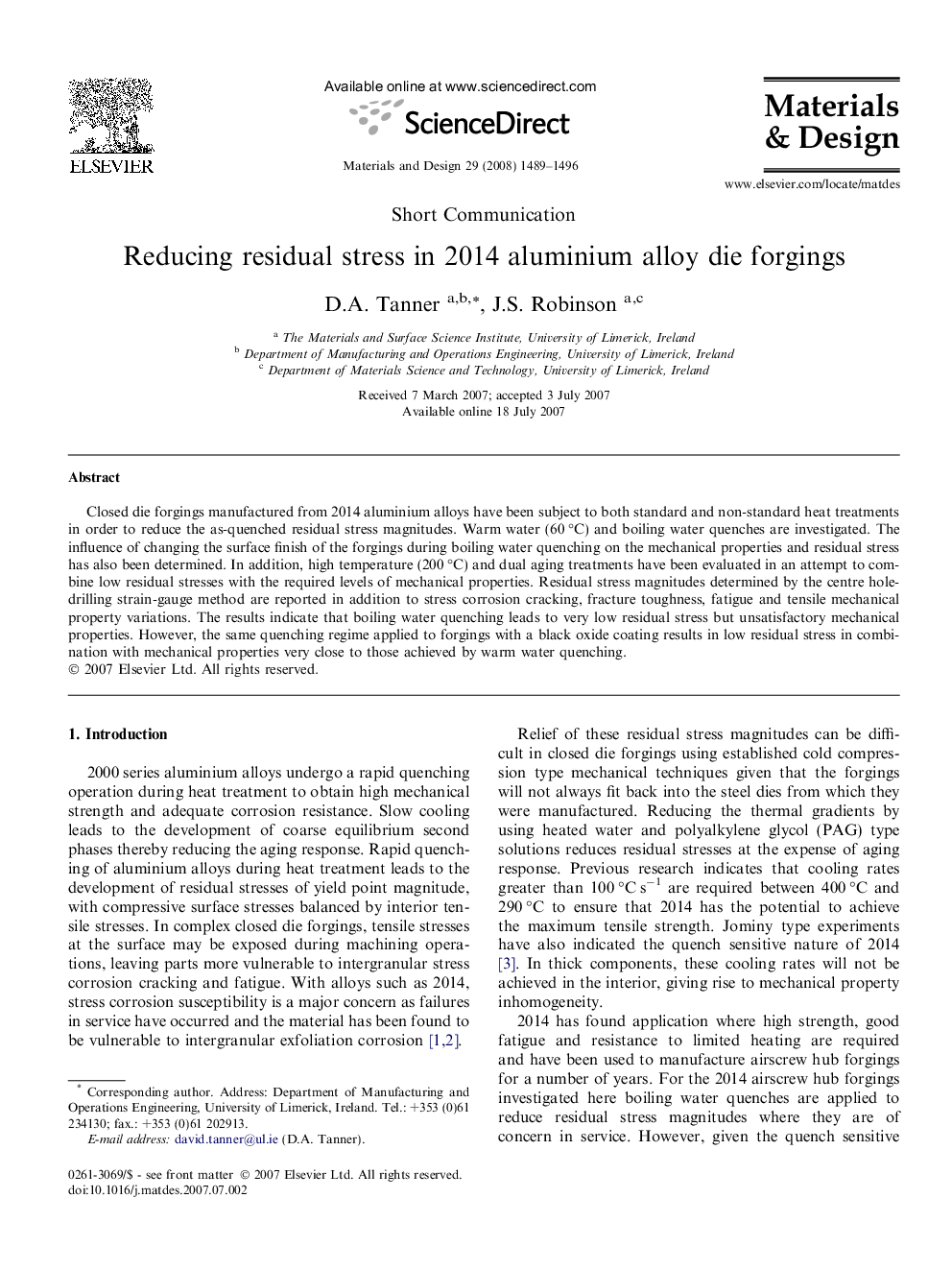| Article ID | Journal | Published Year | Pages | File Type |
|---|---|---|---|---|
| 833226 | Materials & Design (1980-2015) | 2008 | 8 Pages |
Closed die forgings manufactured from 2014 aluminium alloys have been subject to both standard and non-standard heat treatments in order to reduce the as-quenched residual stress magnitudes. Warm water (60 °C) and boiling water quenches are investigated. The influence of changing the surface finish of the forgings during boiling water quenching on the mechanical properties and residual stress has also been determined. In addition, high temperature (200 °C) and dual aging treatments have been evaluated in an attempt to combine low residual stresses with the required levels of mechanical properties. Residual stress magnitudes determined by the centre hole-drilling strain-gauge method are reported in addition to stress corrosion cracking, fracture toughness, fatigue and tensile mechanical property variations. The results indicate that boiling water quenching leads to very low residual stress but unsatisfactory mechanical properties. However, the same quenching regime applied to forgings with a black oxide coating results in low residual stress in combination with mechanical properties very close to those achieved by warm water quenching.
